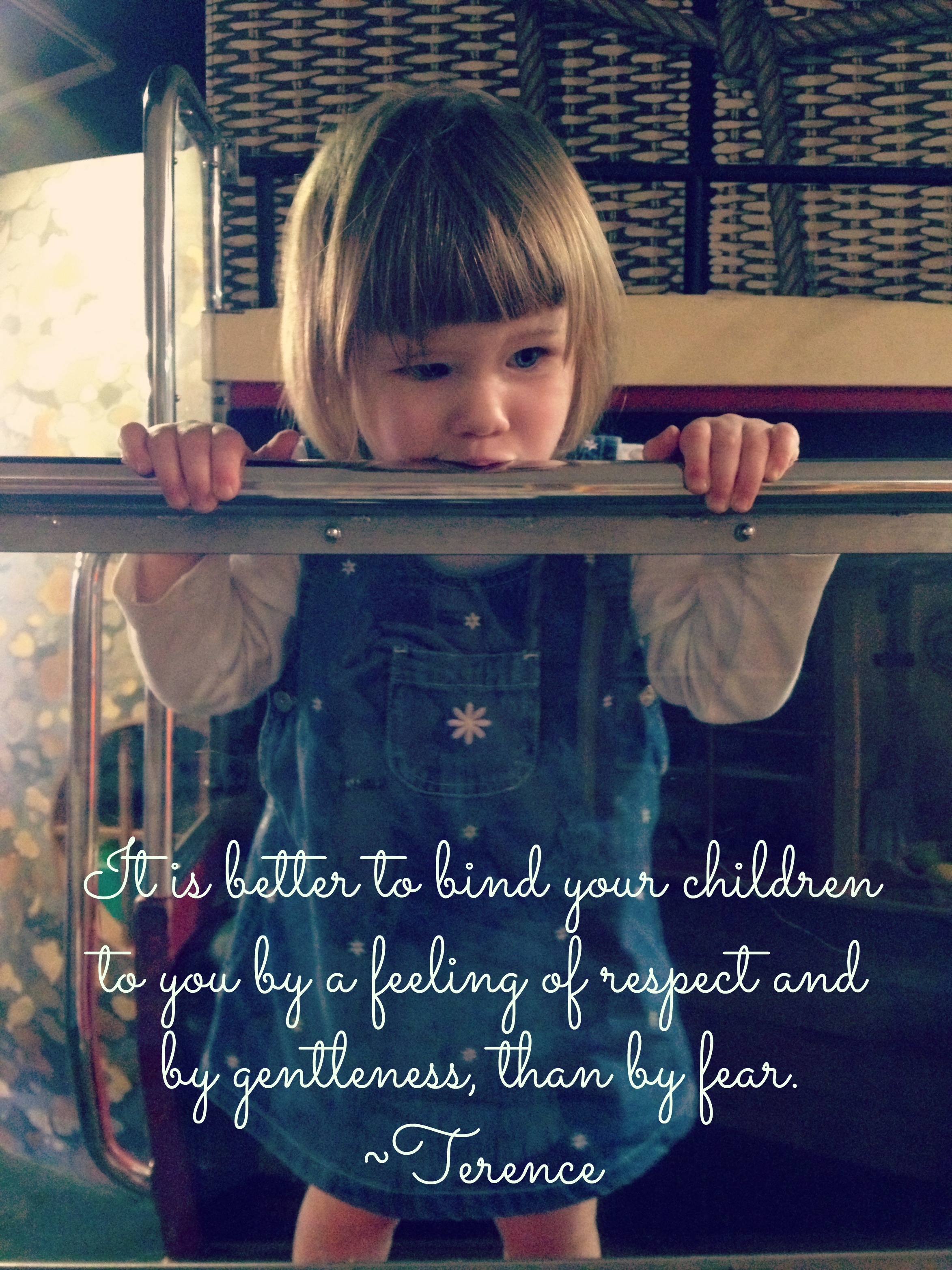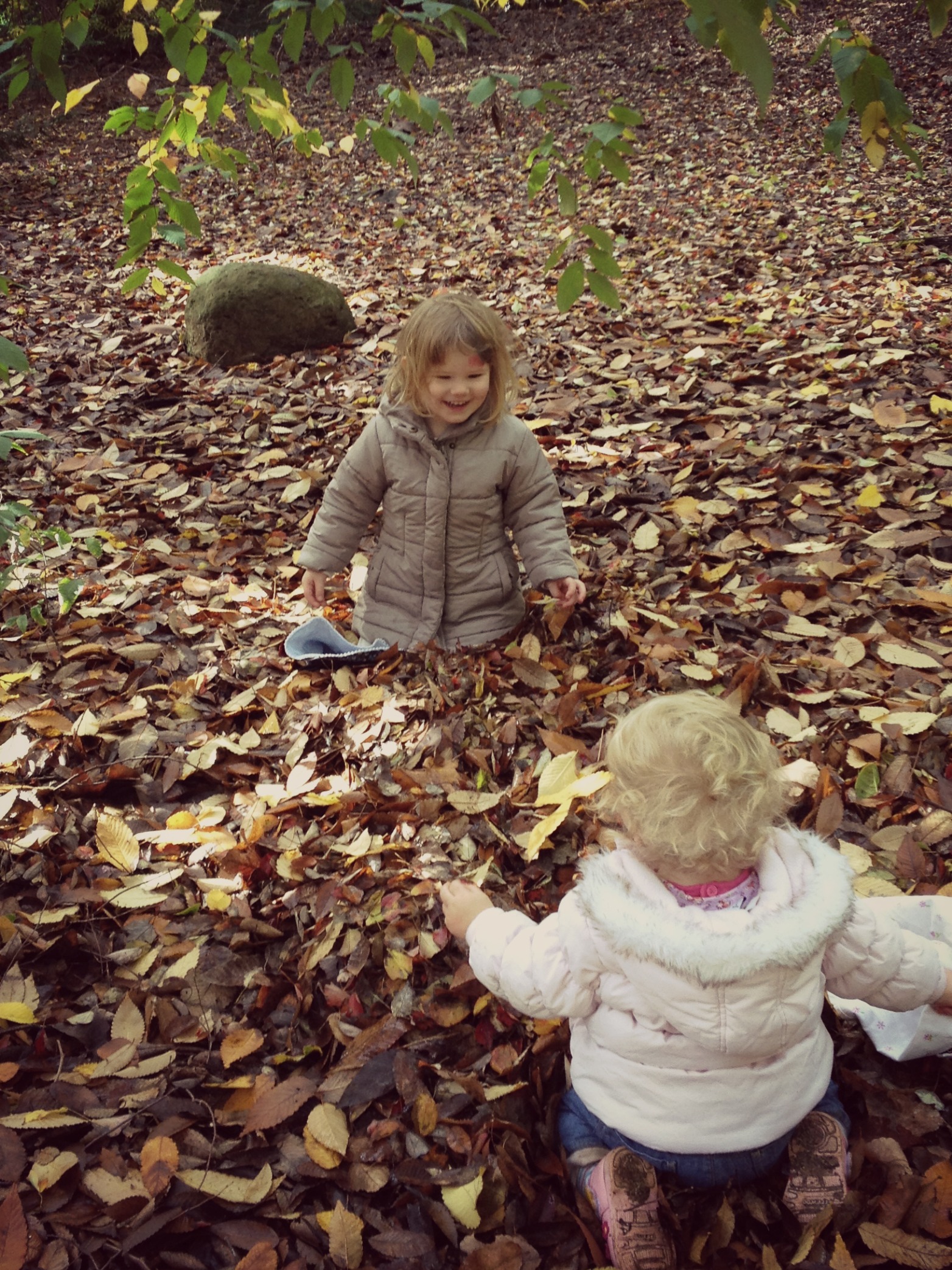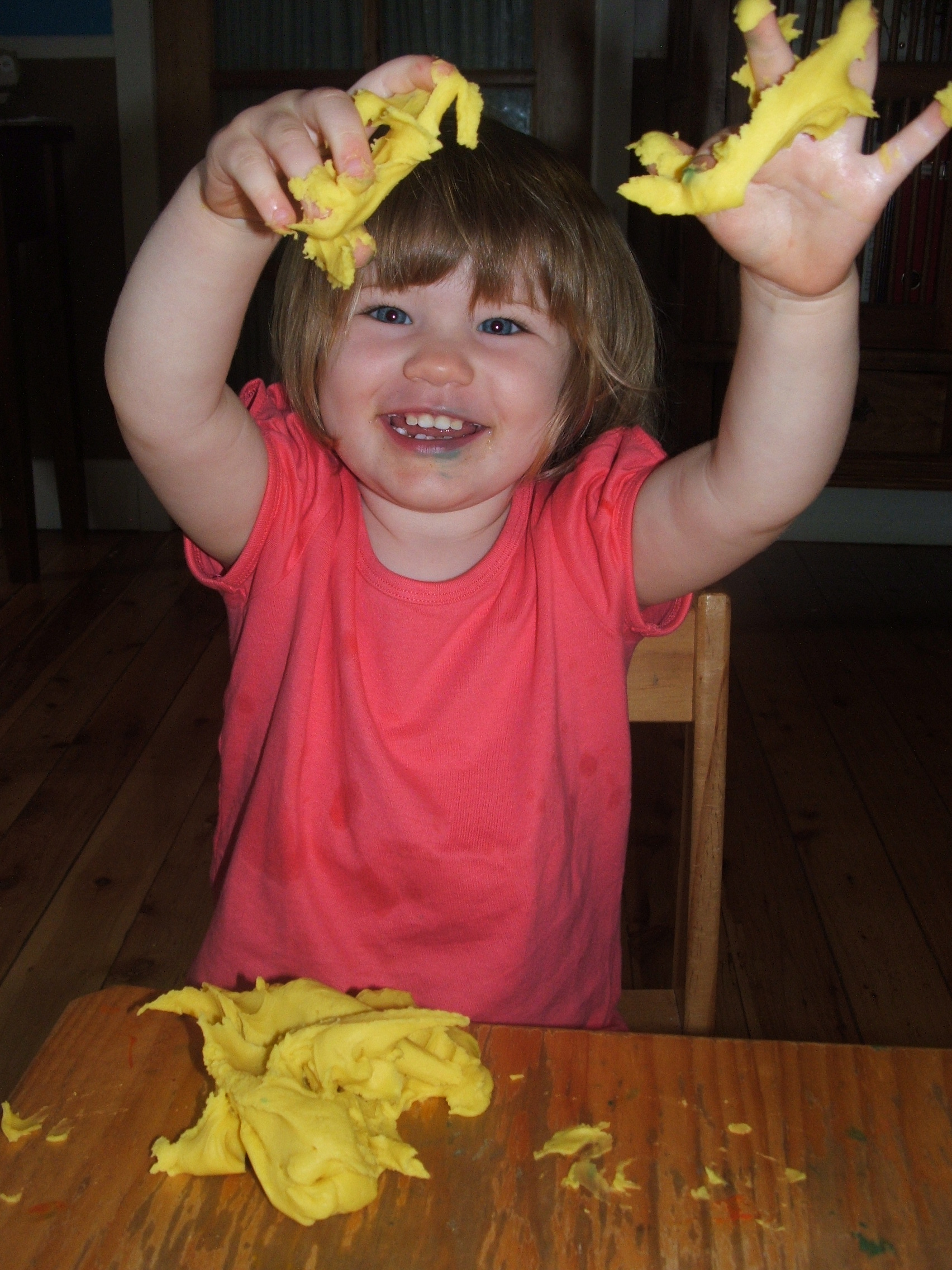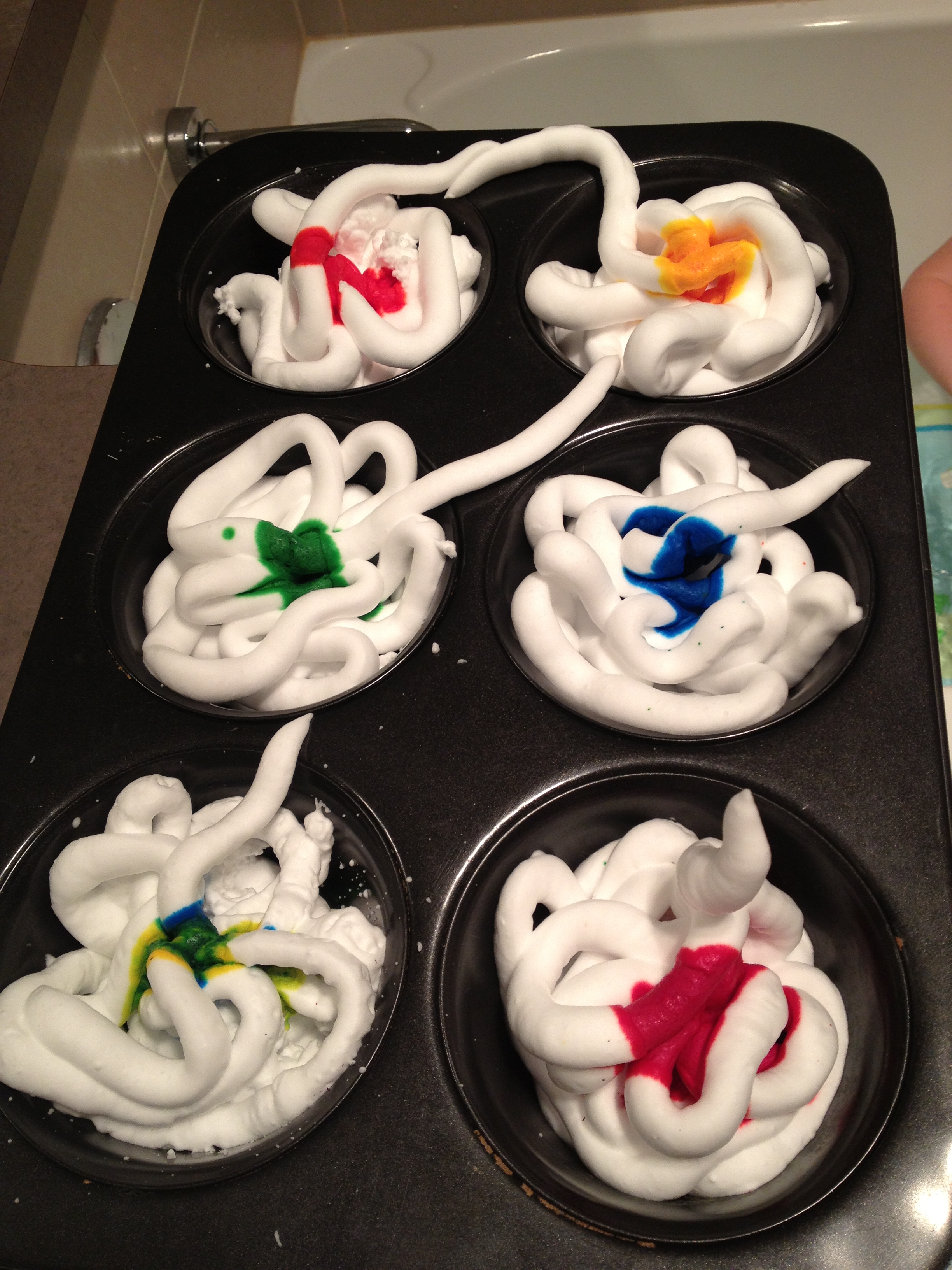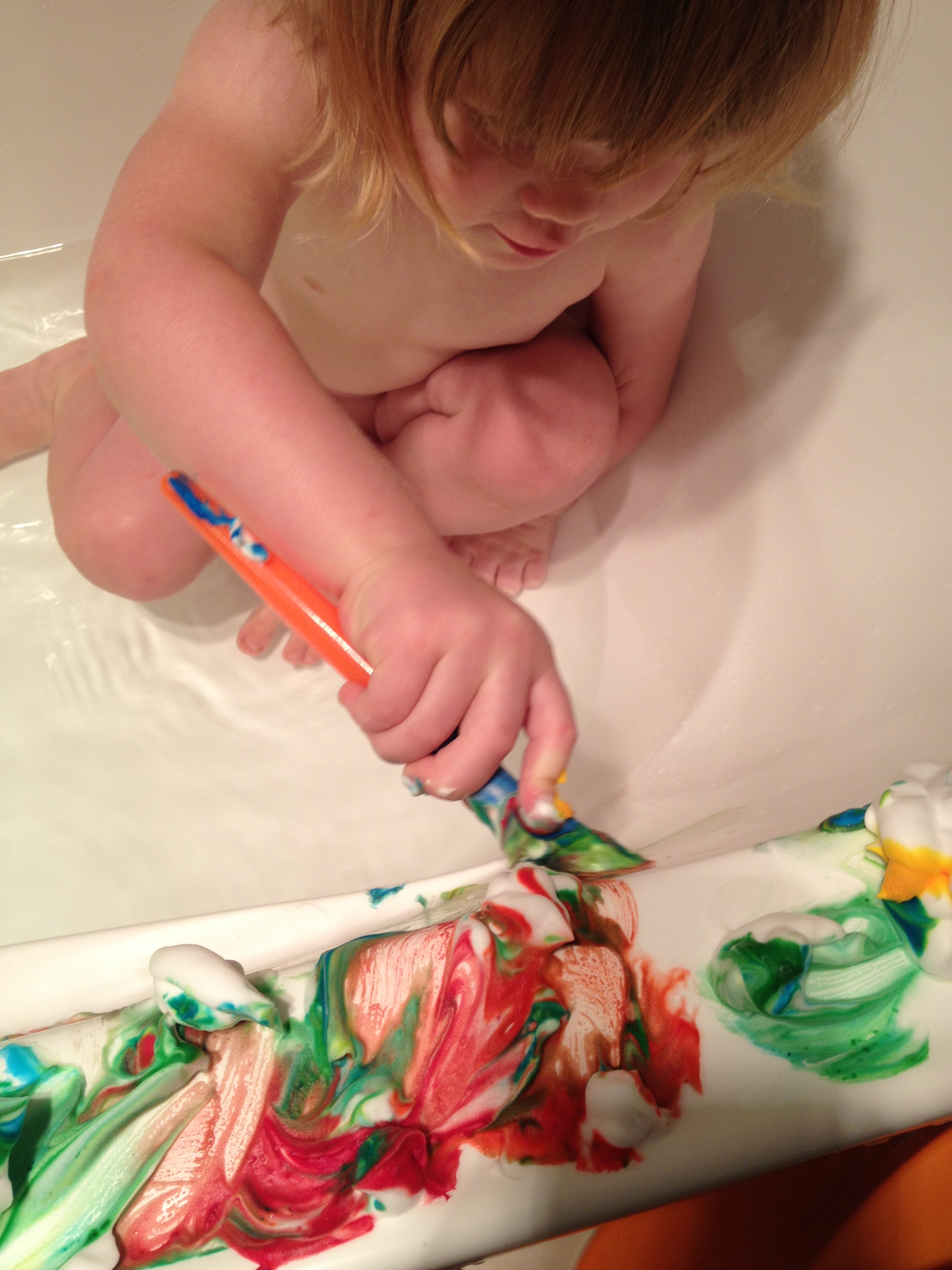Ever since I first learned about RIE, I knew that that was the type of parent I wanted to be. I loved how I could empower my children simply by respecting them as the whole people they are and trusting that they are completely capable of developing and learning at their own pace and in their own time. My biggest problem, however, has been letting go of the parent I was and ignoring many of the reflexive instincts that seem to pop up all the time. This is particularly true when my children have periods of testing behaviour.
Before RIE I was a parent with very high expectations for my children. I wanted them to be exemplary in everything; from their development, to how they played, to the manners they used. I would often chastise them when they would do something that I deemed was not acceptable behaviour thinking that it was important that they associated negative feelings with this sort of behaviour from an early age so that they would avoid repeating it in the future. Funnily enough, my hard line approach to dealing with these issues did absolutely nothing to change their behaviour and served only to make it exciting enough for them to repeat and at the same time, drove a bigger wedge between us all. As emotions and feelings got to boiling point in this household we were extremely lucky to discover a much more peaceful way of parenting and in doing so, reconnect with our children and be rewarded with that lovely feeling that our children truly trust us to cope with the developmental turmoil that they face on a daily basis.
I still find, though, that on occasion my patience is so tested that I snap. This happened to me recently and the events that followed were so profound that I feel like I may be somewhat on the road to being cured of my former parenting tendencies.
Lucy (2.4 years) and I were playing in the rumpus room whilst her younger sister was having a nap. Over the previous few days I had begun to implement a little routine with the girls to encourage them to take responsibility for their toys by helping me tidy up after them. So if Lucy was playing with an activity such as cutting up little pieces of paper, when she was finished and made a move to find something else to do I would remind her that she had dropped some of the paper on the floor and she needed to help me pick it up before moving on. Often times she was happy to do this and we would enjoy working together to pick it all up and place it in the bin or a little jar etc.
So on this particular day, Lucy had been sorting through a jar of buttons and had ultimately tipped the whole jar onto the floor. She enjoyed running her hands through the buttons and picking up handfuls and watching them spill out of her hands back down on the pile.
Now, for whatever reason, 90% of the time when Lucy finishes exploring an activity, any activity-painting, rice play, eating, block building etc, she uses what I call ‘frantic hands’ to disperse her activity as far over the floor or table or room as she can before promptly getting up and walking away. This has always been a huge patience tester for me as you can imagine the mess for what seems, at the time, to be a pointless destructive act whereby she is not even interested in the task afterwards (although I know it is not and is just how she plays).
Usually I am able to remain calm and accept that this is part of Lucy’s play and somehow satisfies a need she has. Implementing the routine of tidying up afterwards has also really helped me accept this behaviour as I know that she has to be responsible for the mess she makes and not just leave it for me to clean. So after Lucy had clearly finished with her buttons and had, as usual, dispersed them over a significant area of the room, I reminded her that we now needed to pick them up and pop them back in the jar. Her response was ‘you pick them up, Mummy’ to which I replied ‘I would like you to help me pick them up’.
For the next 6-7 minutes I tried all manner of peaceful coercion to attempt to have her pick them up with me. I suggested a particular colour she might like to pick up, I made a small area for her to focus on wondering if the task seemed too big (which I think it did in hindsight) and I let her know that I would not let her play with her other toys until the buttons were picked up.
All the while, as her defiance built, I could feel my patience waning. I felt I should probably just let it go and spend 2 minutes doing it myself but it was like I was too far into it and didn’t want to back down from my stance. Finally, I managed to get her to come back to the buttons and she dropped a handful in the jar which she promptly tipped out again. I kept calmly reminding her that all the buttons needed to go back in the jar etc etc and then, as I watched her use her frantic hands once more to further fling the buttons across the room, all the while giving me a very cheeky smirk, I snapped!
I was sitting about 30cm from her and shouted ‘I will NOT let you throw the buttons across the room! Now pick them up and put them in the jar!. Now this was a voice that I had not used in a long time. It was loud, it was angry. I had reached my boiling point and I had gone from zero to a hundred on the calm meter in a matter of milliseconds.
Lucy immediately stopped what she was doing and in her crouched position in the middle of the buttons, head firmly pointed down to the floor she picked up one button and dropped it in the jar. She reached for another and did the same, followed by another. Then a little shattered voice came out whilst her eyes remained fixed down to the floor ‘That was too loud, Mummy!’. It’s making me teary even as I write this. The cry that came out after she uttered those words were as distressed as if I had hit her. In one moment of weakness I had shattered the trust that my little girl has in me to be her rock. I held her then for what seemed like an eternity, letting her cry and trying to stifle my own sobs. When she began to settle, I tried to explain why I had shouted, that I had been frustrated and a bit angry. I am not sure what she thought about this or if it was even the right thing to do but we both settled down.
I did think then that maybe after that she would pick the buttons up with me because she had been frightened by my reaction, but no. She wanted nothing to do with the buttons and so I ended up picking most of them up by myself. When there were only a few stray ones left, she wandered back over and exclaimed, here’s one Mummy and popped it in the jar. She did this until all the buttons were back in the jar and then pushed the lid on top. We put them away and Lucy then played by herself, still unsure about me and our relationship.
It’s astonishing to me that it took my two year old child to tell me in no uncertain terms that she doesn’t like it when I get ‘too loud’. I have been preaching this to myself for quite a while but hadn’t quite let go of the thought that maybe a tiny bit of hard discipline couldn’t hurt. I now know that it is better for my children for me to rise above my own moods and
I am learning to recognise the catalysts that lead to such a melt down. Usually it’s a mixture of the following:
1. One or more days of particularly testing behaviour
2. Two or three bad sleeps or broken sleeps
3. A dash of hormonal moodiness
When all these things align I realise that my fuse shortens. I am now trying to ensure that in these situations, I look after myself a little. I reduce the ‘messy play’ activities Lucy has access to and spend more time with the girls out of the house in parks and forests etc. It is important to me that I keep my daughters’ trust. I want them to be able to come to me when times are tough, not just now but in the future. By recognising my triggers, I hope to ensure that in my daughters’ eyes I can cope with everything they throw at me.

